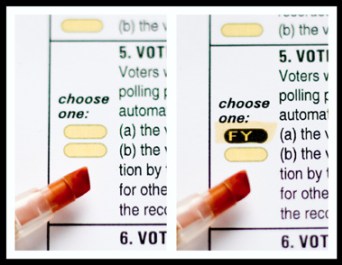
Manuel Schaeffer

Who should get to decide how long Facebook should keep personal data or how they should deploy targeted advertising? The future of privacy will be decided by little tweaks in the phrasing of regulation terminology and users are mostly unaware of these changes. The recently proposed alterations in the privacy rules will facilitate data processing procedures and are deemed problematic by the Irish Data Protection Commission.
When dispersed challenges to their corporate decisions manifest themselves, Facebook can usually rely on a natural network effect because of its impressive member base. Users rarely object because they are either unaware, or the alternative to opt-out is not feasible. For large parts of our social life, the network has become almost indispensable. However, this “Matthew effect” – the phenomenon that the rich become richer – is problematic if the company uses its weight to silently push the privacy rules. The chance to vote in favour or against the new privacy rules could be regarded as a step into the right direction if it were not so obviously flawed.
Did Facebook voluntarily become more democratic? Of course not. The referendum on the new privacy rules is the result of active campaigning by the advocacy site “Europe versus Facebook”. Led by the Austrian law student Max Schrems (previously involved in a debate about the destiny of his user profile on Facebook) the site is fighting for transparency, minimization of data collection and enhanced regulation to facilitate platform migration. After more than 7000 comments on their governance page, Facebook decided to let the entire community vote for themselves. Every user has the chance to vote within one week from the 1st of June until the 8th of June.
The digital procedure is entitled “your voice – your vote”. It is an attempt to create the impression of a democratic vote while manoeuvring as safely as possible through a process that is clearly undesired by the company.
More specifically, the vote is a farce for two reasons.
Firstly, in a democratic election people will be informed about when and where to vote. On the Facebook site governance users can find the proposed and existent versions. In order to be binding, a total of 30% of Facebook users need to vote, otherwise the voting result will only be considered “consultative”. That necessitates a total of 300 million votes. One day before the election ends, 290,000 users have voted. Putting it simply: the quorum will not be reached. Facebook has designed this outcome. Only users that “like” the “Facebook site governance” will be notified about the voting process.
Currently, these are 2 million users, a fraction of 0.2 % of the total user base. This does not even closely mirror the process of a referendum.
Secondly, in a democratic election people will be informed not only about where and when to vote, but also about the possibilities they have or what to vote. In the current case, Facebook designed a voting system that gives users the choice between the existent and the proposed rules. Each of the documents is fairly long, the new one being exactly 37,000 characters long. If you want to figure out the difference between both, you need to read through them and compare for yourself. That can be tedious, frustrating or
simply hard to understand. In a democratic election you would get a summary of a voting program or a clear explanation of the implications.
Facebook should not be exempted from a proper voting procedure. Especially given the fact that the company has arguably transformed into a virtual state that privately governs its virtual territory. Legitimacy in this space can only be the result of a democratic and transparent process. Facebook clearly failed to design an appropriate voting procedure.
If the democratic ideal would have been taken seriously, the voting ballot should have been placed on top of each user profile. You cannot force people to vote, but you can draw their attention to it. Instead of trying to control the outcome, Facebook could have gained legitimacy by designing a democratic voting procedure that serves as a model for future regulation processes. This virtual state needs to take their self-declared citizens more seriously. Although it is clearly unlikely that private companies will be governed by user votes, the potential should not simply be wasted by setting up Potemkin villages. Contrary to the historical example in Russia, this is not just a flawed digital referendum, it is also plain obvious that it is flawed. It will therefore yield greater negative PR ramifications than the previous silent changes.
A real chance for user empowerment has passed. Even worse, the fact that only a fraction of the users is aware of the vote and the statement that the new rules will be automatically implemented if people continue to use the site, reveal a problematic understanding of the governance and user ideal in the largest virtual state. Far from being democratic, this behaviour resembles much more the policy of a semi-authoritarian state.